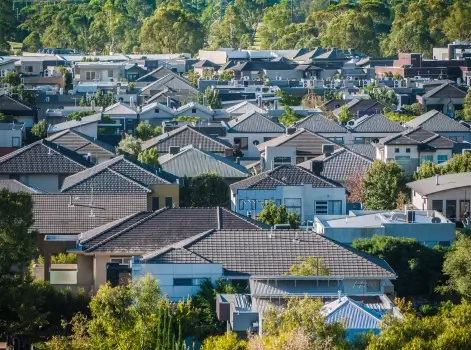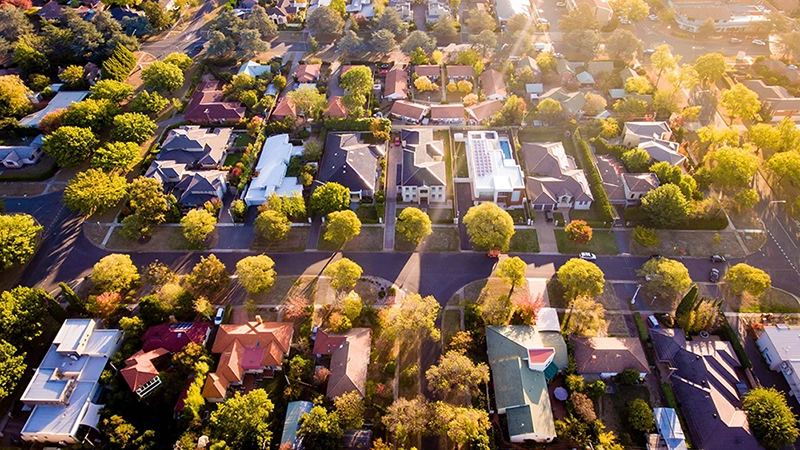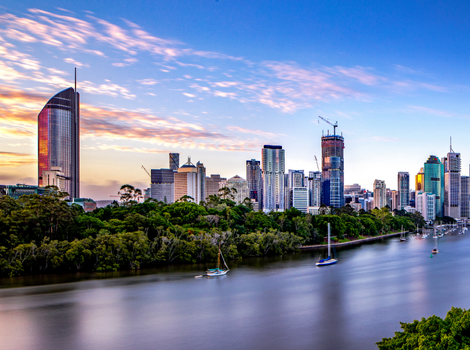Updated: 29 May, 2025
The focus of the 2020 Federal budget is to help Australians get through the COVID-19 recession by boosting business and consumer confidence and growing the economy and creating jobs.
Here’s what Federal Treasurer, Josh Frydenberg announced for the 2020 Federal Budget.
10,000 new places for First Home Loan Deposit Scheme
The scheme allows for first home buyers, with at least a 5% deposit to buy a property without paying for lenders’ mortgage insurance.
The extended scheme comes with increased property price thresholds but is only limited to new-build homes.
Unlike the previous iteration, the extended scheme is only available for newly constructed properties.
| State/Territory | Capital Cities and Regional Centers (new price cap) | Capital Cities and Regional Centres (previous price caps) | Rest of the State (new price cap) | Rest of the State (previous price cap) |
|---|---|---|---|---|
| New South Wales (NSW) | $950,000 | $700,000 | $600,000 | $450,000 |
| Victoria (VIC) | $850,000 | $600,000 | $550,000 | $375,000 |
| Queensland (QLD) | $650,000 | $475,000 | $500,000 | $400,000 |
| Western Australia (WA) | $550,000 | $400,000 | $400,000 | $300,000 |
| South Australia (SA) | $550,000 | $400,000 | $400,000 | $250,000 |
| Tasmania (TAS) | $550,000 | $400,000 | $400,000 | $300,000 |
| Australian Capital Territory (ACT) | $600,000 | $500,000 | N/A | Same price cap throughout the ACT |
| Northern Territory (NT) | $550,000 | $375,000 | N/A | Same price cap throughout the NT |
Lower taxes
The ‘stage two’ tax cuts which were slated for 2022-23 have been moved forward two years and will be backdated to 1 July 2020.
Effective from 1 July 2020:
- Low-income tax offset will increase to $700 from $445.
- Top threshold of the 19% tax bracket increased to $45,000 from $37,000
- Top threshold of the 32.5% tax bracket increased to $120,000 from $90,000.
Low and middle-income earners will receive tax relief of up to $2,745 for singles and up to $5,490 for dual-income families in 2020-21.
Low and middle-income earners will receive a one-off additional benefit of up to $1,080 each.
New personal income tax rates and thresholds
| Rate (%) | Current thresholds from 2018 – 19 ($) | New tax thresholds from 2020-21 to 2023-24($) |
|---|---|---|
| Tax free | 0 – 18,200 | 0 – 18,200 |
| 19 | 18,201 – 37,000 | 18,201 – 45,000 |
| 32.5 | 37,001 – 90,000 | 45,001 – 120,000 |
| 37 | 90,001 – 180,000 | 120,001 – 180,000 |
| 45 | >180,000 | >180,000 |
| Lower Income Tax Offset (LITO) | Up to 445 | Up to 700 |
| (Lower and Middle Income Tax Offsets) LMITO | Up to 1,080 | Up to 1,080* |
*Will only be available until the end of 2020-21 income year With the new thresholds and rates, you have more money in your pocket and you can keep what you earn and spend it on what you need.
CGT exemption on granny flats
A homeowner will not have to pay capital gains tax (CGT) if there is an agreement for a family member to reside in their granny flat, provided the measure passes parliament.
It will come into effect from 1 July 2021.
- There must be a formal written agreement in place.
- The granny flat arrangement must provide accommodation for older Australians or those with disabilities.
- You will still need to pay CGT for arrangements between family members or people with other personal ties.
- CGT is still applicable for commercial rental agreements.
The CGT exemption on granny flats will help 3.9 million pensioners and 4 million with disabilities and also boost the construction industry.
Infrastructure investment
The 10-year transport infrastructure investment pipeline includes projects in every state and territory and also the Melbourne to Brisbane Inland Rail and the Western Sydney International Airport.
- $7.5 billion for transport infrastructure across all states and territories.
- $2 billion funding for shovel-ready projects for road safety initiatives
- $1 billion for the Local Roads and Community Infrastructure Program.
- $4.5 billion for investment in National Broadband Network
- $2 billion for new projects under National Water Instrasturuce Development Fund.
| State / Territory | Federal Budget Funding | Projects |
|---|---|---|
| New South Wales (NSW) | $2.7 billion | Singleton Bypass on the New England Highway Newcastle Inner City Bypass between Rankin Park and Jesmond Prospect Highway Upgrade Coffs Harbour Bypass |
| Victoria (VIC) | $1.1 billion | Shepparton Rail Line Upgrade Stage 2 of the Warrnambool Rail Line Upgrade Barwon Heads Road Upgrade upgrade Hall Road in Cranbourne |
| Queensland (QLD) | $1.3 billion | Stage 1 of Commera Connector (Commera to Neranf) Centenary Bridge Upgrade in Brisbane Stage 2 of the Riverway Drive Upgrade between Allambie Lane and Dunlop Street in Townsville Mt Lindesay Highway Upgrade between Johanna Street and South Street in Jimboomba |
| Western Australia (WA) | $1.1 billion | Reid Highway Interchange with West Swan Road Roe Highway Widening and Abernethy Road Upgrade undertake sealing of priority sections of the Goldfields Highway between Wiluna and Meekatharra undertake upgrades on the Broome-Cape Leveque Road and associated community access roads |
| South Australia (SA) | $625 million | Hahndorf Township Improvements and Access Upgrade Stage 2 of the Main South Road Duplication between Aldinga and Sellicks Beach Strzelecki Track Upgrade |
| Tasmania (TAS) | $360 million | Midway Point Causeway (including McGees Bridge) and Sorell Causeway as part of the Hobart to Sorell Roads of Strategic Importance corridor upgrade the Tasman Bridge |
| Northern Territory (NT) | $190 million | Upgrade the Carpentaria Highway National Network Highway Upgrades |
| Australian Capital Territory (ACT) | $155 million | Molonglo River Bridge South West Corridor upgrade package |
Table: $7.5 billion budget allocation for transport infrastructure
Instant asset write-off
Businesses can write off the full value of any assets they’ve purchased and claw back tax already paid against the losses to June 2022.
A business with a turnover of up to $5 billion can deduct the full cost of eligible depreciable assets acquired from 6 October 2020, which is either first used or installed by 30 June 2022.
The budget will also temporarily allow companies with turnover of up to $5 billion to offset tax losses against profits on which tax has already been paid.
The 2020 budget is aimed at rebuilding the Australian economy after the effects of COVID-19, it will help first home buyers to achieve their dreams of homeownership with the First Home Loan Deposit Scheme.
With the budget allocated for transport and infrastructure development in each state and the territories, it might help to increase property prices and values in the near future.
The tax cut, which means more money in people’s pockets may also assist people looking to get a home loan as they will have slightly better affordability.
Are you looking to buy a home or invest in property? Our mortgage brokers are here to help. Please call us on 1300 889 743 or fill in our free assessment form.









